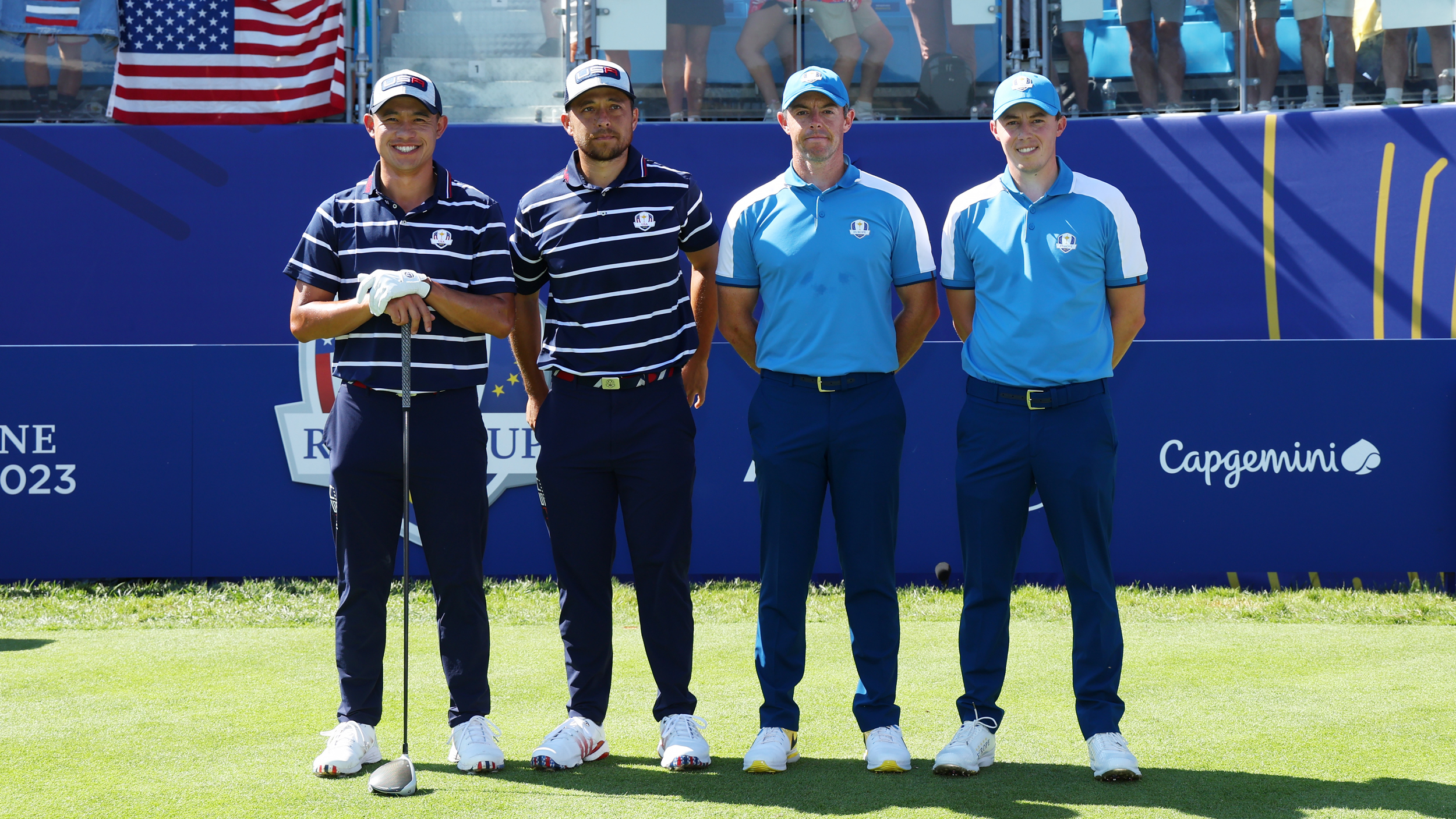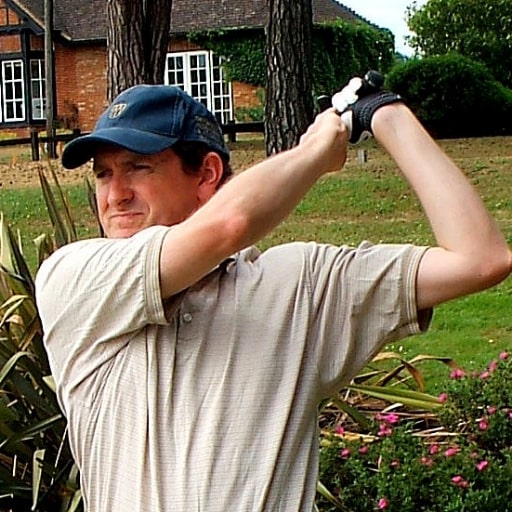How Does Golf's Four-Ball Better-Ball Format Work?
Four-ball better-ball is a very popular format in the amateur game, but it's also used at some of the biggest team events in golf like the Ryder Cup

Elliott Heath

Four-ball better-ball is a popular team golf format, traditionally used in the Ryder Cup, Presidents Cup, Solheim Cup and elite amateur events like the Walker Cup and Curtis Cup.
In fact, eight of the 28 matches at the Ryder Cup are four-ball games, with two sessions of four matches taking place over the first two days.
Golfers play in pre-determined pairs and each play their own golf ball - hence the 'four-ball' name.
This is in direct contrast to another popular team format, foursomes, whereby a pair of golfers play alternate shots with just one ball - the main difference between four-ball and foursomes.
The individual with the lowest score in each pair on each hole provides the team's score for that particular hole, hence the name 'better-ball'.
How Is Four-Ball Better-Ball Scored?
The four-ball format can be scored using stroke play or match play, but it's the latter that is most famously used in the Ryder Cup and more common in the majority of instances at professional and club level.
A team's best score, ie their 'better-ball', counts for that hole and they can either win, tie or lose the hole.
Subscribe to the Golf Monthly newsletter to stay up to date with all the latest tour news, equipment news, reviews, head-to-heads and buyer’s guides from our team of experienced experts.
A team wins the hole to go 1up and the match then goes back to all-square or tied if the opposing team wins the next hole, or 2up if the leading team wins another hole.
Once one team is more holes up than there is left to play, they win the match.
For example, if USA win the 16th hole to go 3up, they win the match 3&2 because there are only two holes left and therefore they are victorious. This means that the match ends and they walk in after 16 holes.
This is why many matches at the Ryder Cup don't actually reach the 18th hole.

The 18th hole at the 2025 Ryder Cup, which many matches will not even reach
How Does Four-Ball Better-Ball Work In Amateur Golf?
In the amateur game, each pair records their gross score on a hole, on a single scorecard, but must identify which player scored this. This is often the two individual players that make up the pair may have different handicaps, so the score will be valued differently dependent on this.
On each hole, the team can elect to record both players’ score or only one. If one player cannot better the score of their partner, then he or she doesn't need to hole out and should pick up.
How Do Handicaps Work In Four-Ball Better-Ball?
Under the World Handicap System, each player will get 85% of handicap allowance in four-ball strokeplay or Stableford competitions. In four-ball match play, it is 90%.
Although each player has to play their own ball, in several respects the players are treated as the same player. Thus a player may, for example, mark his partner’s ball, or lift and clean it, or drop it under penalty. (If these are done incorrectly, the player whose ball it is is the one who is penalised.)
Similarly, a player and the player’s caddie may also give help to the partner in the same way that the partner's own caddie would be allowed to do. One partner can also act for the team in actions such as conceding a shot or a hole.
Or indeed in playing a hole. If one partner fails to turn up on time, his or her partner can play alone for that team until the latecomer does turn up. Partners may also play in the order the side considers best when it is one of their turn to play.
So if Alex and Sam are a four-ball team, and Sam would have the next putt as his ball is the furthest away from the hole, the team can elect that Alex plays first, and then Sam, if they so desire.
Contributing Writer Roderick is the author of the critically acclaimed comic golf novel, Summer At Tangents. Golf courses and travel are Roderick’s particular interests. He writes travel articles and general features for the magazine, travel supplement and website. He also compiles the magazine's crossword. He is a member of Trevose Golf & Country Club and has played golf in around two dozen countries. Cricket is his other main sporting love. He is also the author of five non-fiction books, four of which are still in print: The Novel Life of PG Wodehouse; The Don: Beyond Boundaries; Wally Hammond: Gentleman & Player and England’s Greatest Post-War All Rounder.
- Elliott HeathNews Editor
You must confirm your public display name before commenting
Please logout and then login again, you will then be prompted to enter your display name.
